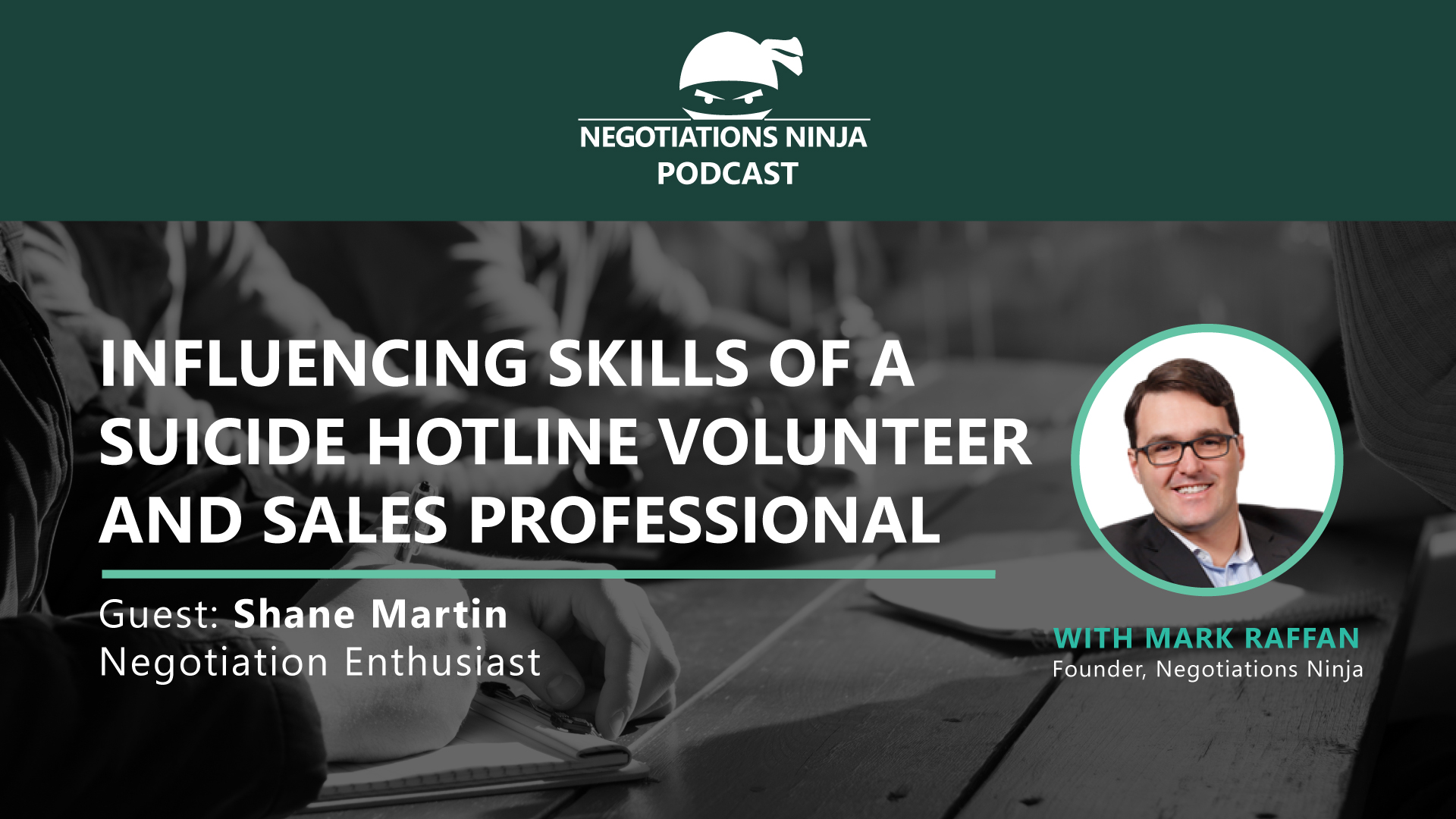I’ve said before that the ability to negotiate well is a skill that can be learned over a lifetime. An important part of that learning is application. Taking what you learn out into the world and applying it to situations outside your field or what you’re used to will only help enhance what you know and show you new sides and perspectives.
This is what Shane Martin, a recent guest on Negotiation Ninja podcast, has done. Shane works in sales and uses negotiation tactics in his work life, but to help enhance his skills, he decided to apply them in a different way, using a different outlet. So, he volunteered for a suicide hotline.
Every time Shane gives his time to the suicide hotline he is placed in a real-time life-and-death situation. He puts himself in that position willingly as a challenge for himself and to make an impact.
Working in sales, Shane is familiar with negotiation. Every sale he makes requires a negotiation process to some degree, and he sees the similarities in strategy working with the hotline.
One of the biggest connections he’s made and things he lives by is, “to get more, you have to give more.” In regard to sales, offering the knowledge you have, the resources you can share, and a solution to a problem, you are giving to make a sale, and the more you give the person with a problem, the more they will buy from you. From Shane’s perspective from the hotline, people are usually calling because they have a problem. Shane’s job in that scenario is to offer what he can, provide a friendly voice, resources, and solutions.
“The thing that I’ve learned that really puts people’s guards down and allows them to share what they need and what their real problem is, is to teach,” Shane says.
Giving information and insight first, before selling or negotiating, builds trust. It’s important to provide that added value upfront, without anything in return from them because that will show them you have their best-interest in mind.
Going into your next negotiation, if you think of the person on the opposing side as someone on the other end of the suicide hotline, how would you treat them differently? How would you gain their trust? What would you give them?
Obviously, we can’t treat every negotiation situation we walk into as life-and-death – that might be a little too emotionally taxing – but we can take some insights from those situations and how we deal with people. If you want to excel as a negotiator, it’s important to apply your skills to other real-life scenarios and put yourself in new situations, seeing different angles.
For more from Shane’s experience at the suicide hotline, subscribe to Negotiations Ninja podcast, and follow us on LinkedIn.

